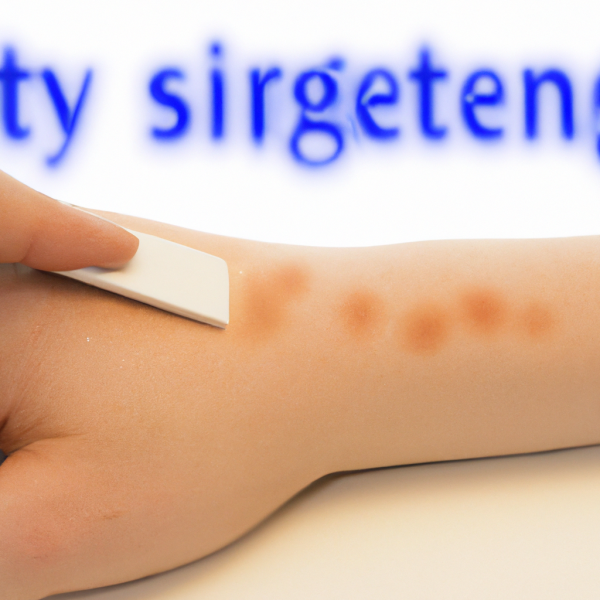The sensitivity of our intricate skin what we need to consider
When creating premium beauty products, it is essential to ensure that the skin is taken care of and not damaged in any way. Experienced cosmetic champions understand this fact and tend to put in a tremendous amount of work in making sure that the compounds used are of the right quality to not cause any unwanted reactions. One of the most integral parts is to conduct sensitivity tests in order to assess the potential reaction of one’s skin with the cosmetics used.
The human skin is quite an intricate structure, designed to protect its inner workings. Unfortunately, such an elaborate build comes with a caveat. Some of us are more vulnerable to irritations and inflammations caused especially by chemicals. This is why it is essential to perform skin sensitivity testing in order to understand the impact of the compounds used in the products.
The importance of skin sensitivity tests
The skin sensitivity tests conducted on cosmetic products are of great importance for the companies distributing the products and for the end-users. For the companies, it is essential to have a clear image of the impact the cosmetics will have on the user’s skin and ensure that the government regulations related to the quality assurance of their products are met.
On the other hand, it is also extremely important for the end-users to know that the products they are investing in are safe and unlikely to cause any skin damage.
How do skin sensitivity tests work?
The process of skin sensitivity testing involves a detailed analysis of the ingredients utilized in producing the product, followed by the assessment of the potential irritants that can be included in the compounds and by their potential reaction with the human skin.
The tests are conducted on small parts of the skin of a sample in order to determine the exact potential effect the product can have. In addition to that, the results of such tests can also be used for the assessment of the additional components which can be added to the cosmetic products in order to minimize the risk of allergic reactions and inflammation.
Creating safe compounds for our products
Every cosmetics product goes through an extensive and thorough skin testing, approved by governments and organizations such as the European Union, Health Canada, and the FDA.
The results of the testing determine the amount of chemicals used in each product and demonstrate whether the substances are safe for the skin. For instance, a product that typically contains a particular strain of a plant, such as lavender, is tested with several variations of the plant in order to determine the strain of lavender that will offer the best protection.
Common skin sensitivity tests
The following are some of the common skin sensitivity tests used in assessing the safety of different cosmetics:
Stability Test
A stability test is the most common type of skin sensitivity test and it is used for almost all types of cosmetics. It involves testing the product in several different environments and measuring the changes of the product. This helps in assessing the ingredients used in the product and understanding their impact on our skin.
Dynamic Test
Dynamic Test utilizes a variety of tests, providing a more detailed understanding of the safety and compatibility of the product. It is used to study the reaction of the product in relation to body temperature, humidity, and pH. It also helps measure the impact of the product on skin cell regeneration.
Allergy Tests
One of the most important sensitivity tests, this test helps determine if the product causes any allergic reactions. It is conducted in a number of ways, such as a patch test, where a patch of the product is placed on the individual’s skin and monitored for any allergic reactions.
Using the tests for better results
Skin sensitivity tests are essential in understanding the impact of the cosmetic products on our skin and ensuring that the compounds are of the highest quality possible. Furthermore, the results of the tests should be used in order to formulate the most efficient solutions for the skin, thereby extending the longevity and youthfulness of our skin.
It is therefore essential for us to regularly update our understanding of skin sensitivity tests, to ensure that our skin is safe and protected from all potential damage and harm.
The Role of Dermatologists in Skin Sensitivity Testing
When it comes to conducting skin sensitivity tests, dermatologists play a crucial role in ensuring accurate and reliable results. These medical professionals specialize in the study and treatment of skin-related conditions, making them the ideal experts to consult for comprehensive testing. Dermatologists possess in-depth knowledge of the skin’s anatomy, physiology, and potential reactions to different substances. Let’s explore the important contributions they make to the process.
Thorough Assessment and Expertise: Dermatologists conduct a thorough assessment of the ingredients present in cosmetic products, utilizing their extensive knowledge of dermatology. They are equipped with a deep understanding of various compounds and their potential impact on the skin. By analyzing these ingredients, dermatologists can identify potential irritants and allergens that may cause adverse reactions.
Precision and Accuracy: Skin sensitivity tests require precision and accuracy to obtain reliable results. Dermatologists possess the necessary expertise to administer these tests effectively. They carefully select a sample area of the skin and apply the cosmetic product to evaluate any potential reactions. Through their meticulous approach, dermatologists ensure the tests are conducted under controlled conditions, minimizing confounding factors.
Interpretation and Diagnosis: Once the tests are completed, dermatologists analyze the results to provide a comprehensive interpretation. They assess the skin’s response, identify any allergic reactions or inflammations, and diagnose the level of sensitivity exhibited. With their specialized knowledge, dermatologists can recommend appropriate solutions and alternative product formulations to mitigate potential risks.
Collaboration and Compliance: Dermatologists work closely with cosmetic companies to ensure compliance with governmental regulations and quality standards. They play a vital role in verifying that the products meet the necessary safety criteria. By collaborating with regulatory bodies and organizations like the European Union, Health Canada, and the FDA, dermatologists help safeguard consumer well-being.
Continual Research and Advancement: Dermatology is a rapidly evolving field, with ongoing research into new substances, technologies, and testing methods. Dermatologists stay up-to-date with the latest advancements to provide cutting-edge expertise in skin sensitivity testing. Their commitment to continual learning and research contributes to the improvement of testing protocols and the development of safer cosmetic products.
In conclusion, dermatologists are indispensable in the process of skin sensitivity testing. Their expertise, precision, and ability to interpret results ensure accurate assessments of cosmetic products’ impact on the skin. By collaborating with regulatory bodies and staying informed about the latest advancements, dermatologists continuously strive to enhance the safety and effectiveness of cosmetic formulations. Make informed choices for your skin by consulting with a dermatologist who can guide you through the intricacies of skin sensitivity testing.






